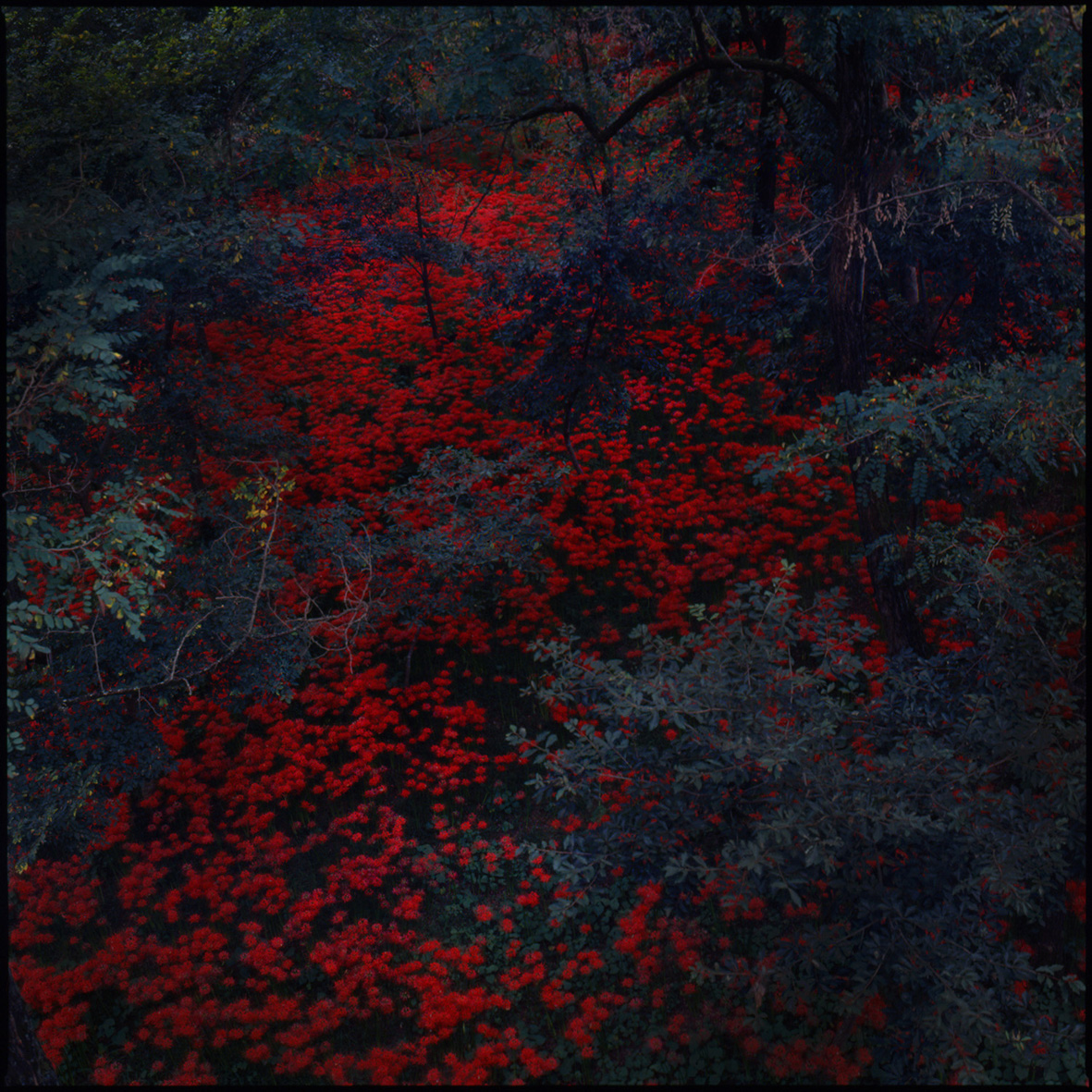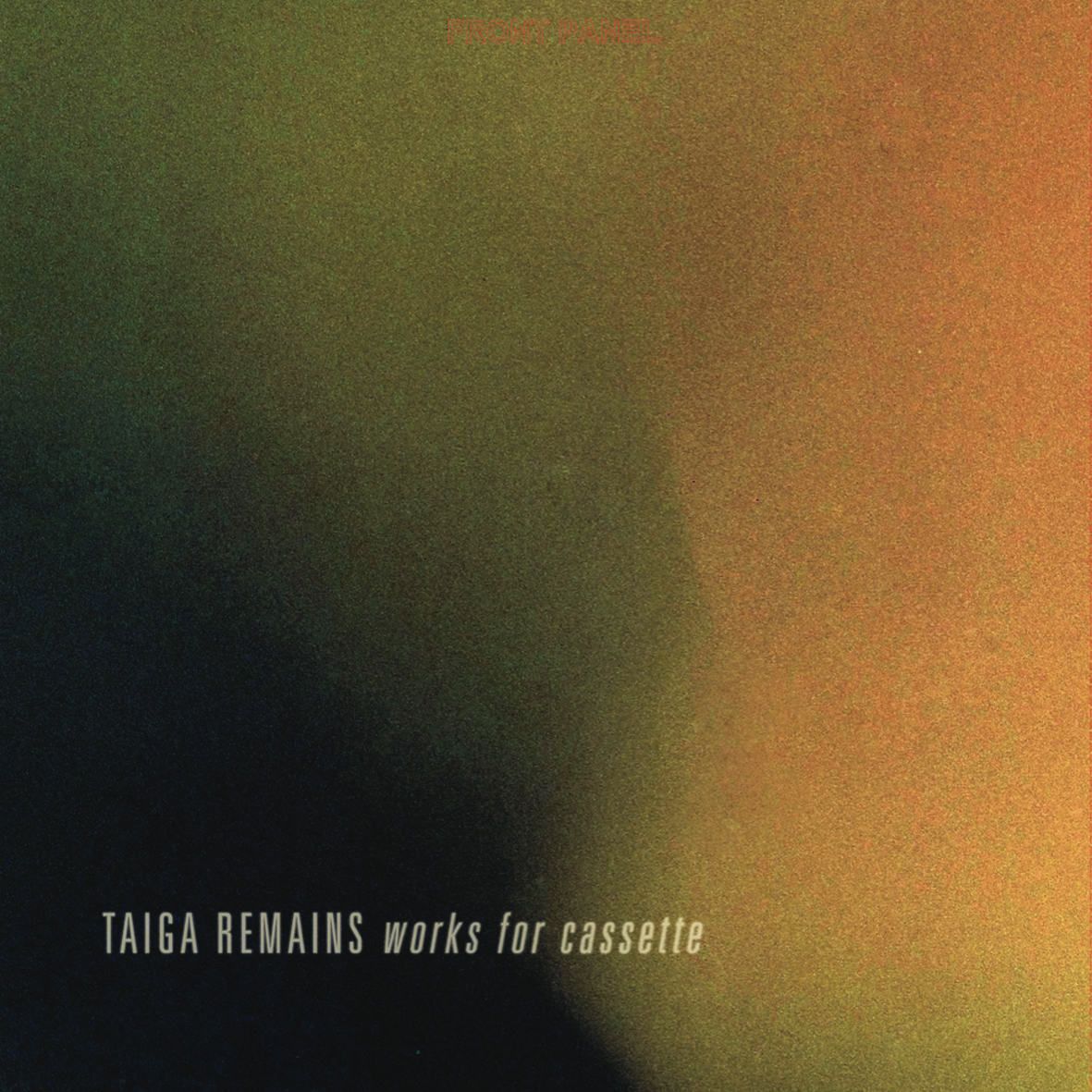Alex Cobb, "Marigold and Cable" and Taiga Remains, "Works for Cassette"

Students of Decay label head Alex Cobb is back with two new albums: his latest ambient drone opus under his own name and a compilation of some of Taiga Remains’ limited-edition cassette releases from 2008. They feel oddly like companion pieces—though at least six years separate the two albums—as it seems like Cobb was always reaching for the same minimal, warm, and blurred aesthetic.  He just used different means to get there at different points in his career.  In any case, both albums are quite likable: while Marigold and Cable handily eclipses Works in both execution and composition, the Taiga album nicely offsets some of Cobb’s serene tendencies with a healthy dose of tape noise, which offers a charm all its own.
Although it does not sound like it, Marigold and Cable was recorded without the use of loops or synthesizers–just "live" processed guitar.  Normally, such feats do not impress me all that much, as how the album ultimately sounds is much more important than the difficulty or purity of the process involved in getting there.  In this case, however, I was genuinely taken aback by how lush and oceanic the opening "Famosa" sounded.  Lamentably, it lasts less than four minutes, however, and is followed by a less immediately striking piece ("Rain at the Fete") that is almost four times as long.  "Rain" is not without its appeal though, despite being less engulfing.  In fact, it is actually quite a bit more ambitious than its processor, sounding like a deliberate composition rather than just a waxing and waning swell of shimmering guitar noise.  Stars of the Lid is probably the obvious reference point for the pastoral drift of "Rain," but Cobb admirably puts a bit of his own spin on that aesthetic by beautifully blurring and smearing his notes.
As good as that sounds, Cobb errs on being a bit too tranquil and understated for my taste, so I prefer Marigold’s somewhat more varied second half.  On "Oversong," for example, Cobb is joined by Root Strata's Maxwell Croy on koto, which proves to be an excellent pairing.  Cobb's guitar shimmer recalls a more restrained version of "Famosa," but the harsher metallic texture of Croy's koto is the perfect foil for Alex’s sea of ambient bliss.  Also, there are some very nice oscillating overtone harmonies drifting about as well, making for an absolutely wonderful piece from start to finish.  Contrast and artfully buried tension always make good ambient drone even better.  The album closes with another lengthy piece ("Marine Layer") that revisits the bleary, long-form drift of "Rain," but much more satisfyingly, as its more pastoral tendencies are balanced out by a subtly dissonant haze of overtones and a bit of unpredictable-sounding feedback.
While I only truly liked three of the four pieces, that is quite an impressive success rate for an ambient drone album (for me, anyway).  I have no idea how to rank this within Cobb’s oeuvre, however, as I preferred the harsher textures of 2012’s Passage to Morning and have not heard much of his Taiga Remains back catalog.  That said, Alex definitely seems to be making impressive leaps as a composer with each new album, even as he veers away from my subjective comfort zone into calmer waters.  While I am tempted to grumble at length about how there should have been way more koto, I will instead concede that Marigold and Cable is ultimately a strong effort that should sate the appetite of anybody nostalgic for the golden age of Kranky drone, which is certainly a void that could use some filling.

Works for Cassette is culled from two separate releases, Beneath the Weeping Beeches (Ekhein) and Thereafter (Arbor), and is immediately differentiated from Marigold by the fact that Alex's guitar actually sounds like a guitar in the opening "Sup Pralad."  Despite that, he seems to have used the cassette medium to achieve a similar end, replacing willful blurring of sounds with tape hiss and the smearing effect of low-fidelity cassette recording.  The mood is quite a bit different though, as pieces like "There's Nothing" undercut Cobb’s drifting swells with quite a bit of rawness and trebly edge.  A significant change occurs with the lengthy third song, however, which is surprising, as it comes from the same tape as the previous pieces.  While "Skin, Leaves" still sounds quite lo-fi and smeared, it seems to work much better, as the gently oscillating cassette murk is perfectly suited for its glacially drifting melancholy.  It is a great piece, though its execution sounds quite primitive when compared to Cobb's current work.  A strong motif is a strong motif.
The final two pieces come from Thereafter and sound more refined than those from Beeches and quite a bit more like Cobb's more serene work under his own name.  Not entirely though, as there is still quite a bit of tape distortion to give Alex's warm swells of processed guitar a bit of harshness and unpredictability, particularly with the feedback that surges up into the higher registers.  All the now-familiar Cobb characteristics are otherwise quite firmly in place, however, as both "Winter Tai-Tung" and "Spring Shan-Lin-Shi" unfold in gently hallucinatory slow-motion and accrue complicated clouds of overtone harmonies as they progress.  The warmer, more open "Spring" is especially good, though I think "Skin, Leaves" probably still steals the show.
While I definitely enjoyed it, my feelings about Works for Cassette are somewhat ambiguous and conflicted.  On the one hand, Alex has evolved beyond this early material in a significant way, so it seems perplexing that anyone else would want to look backwards when there are better, more recent albums to enjoy.  On the other hand, these pieces are still good enough to make me feel like kind of a chump for missing out on them when they originally came out–I would have liked these tapes a lot in 2008 (and Beeches even had artwork by Solange from Natural Snow Buildings).  Also, it seems like a waste for only like 75 or 100 people to get to hear those tapes, so their reissue seems entirely warranted.  I guess the people who want to experience the more shadowy corners of Cobb's discography will now get their chance and can expect to be appropriately delighted, but Works is probably one for the fans only.
 
 
 



